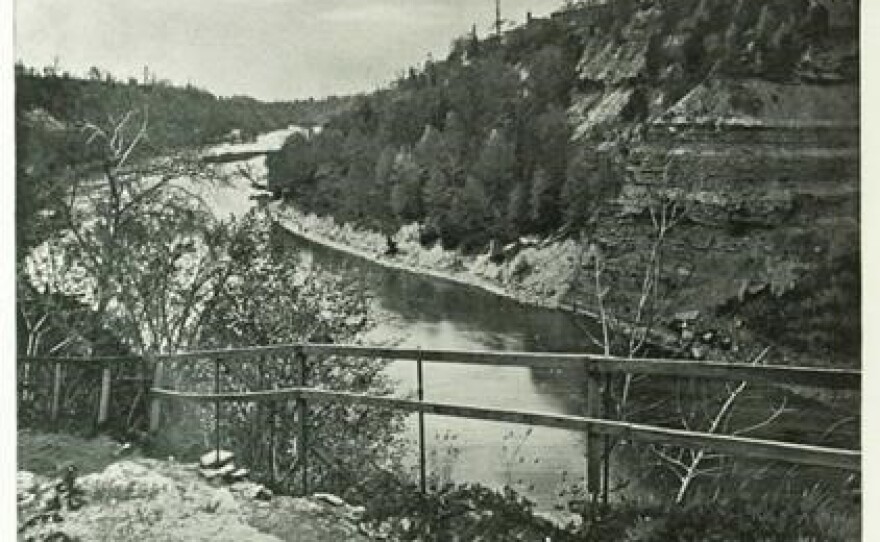Down a steep cliff from Maplewood Rose Garden is a place that Rochester once forgot, despite its historical importance that involved some of the area's most famous citizens.
If you wanted to go from Rochester to Chicago, Canada or even England in the mid-1800s, you were likely taking a steamship -- and for a time, you left from Kelsey’s Landing.
Built by Alexander Kelsey in 1844 along the banks of the Genesee River, the landing’s accessibility made it a popular place in the 1840s and '50s for moving people and goods like flour, timber, and salt.
Bill Self is the executive director of the Lower Falls Foundation, which is dedicated to preserving the area's history.
“It didn’t take long for Kelsey’s Landing to become the prominent landing for this part of the gorge,” said Self.
To make moving goods and people down the hill easier, Kelsey sought investors so he could build a steam-powered grain elevator and a tavern. Several roads also led there. Self said those technological advantages drove nearby Brewer’s Landing out of business.
“The country was just developing; this is still early in the 1800s,” said Self. “Opportunity was just rampant. In a good way.”
Video by Max Schulte
But Rochester City Historian Christine Ridarsky said the impact of Kelsey’s Landing goes far beyond shipping.
“It was a major place of departure for freedom-seekers on the Underground Railroad,” said Ridarsky. “And so people like Frederick Douglass and Harriet Tubman would help people who were trying to escape, usually to Canada, to get to a boat on Kelsey’s Landing.”
Douglass, Tubman and the Rochester Anti-Slavery Society used the activity around the landing to their advantage as they ushered more than 100 escaped slaves a year onto cargo ships with foreign flags.
In one of his autobiographies, Douglass said he personally escorted dozens to the landing, where they boarded ships.
This is how he described one of his trips to Kelsey’s Landing:
“We reached the boat at least fifteen minutes before the time of its departure, and that without remark or molestation. But those fifteen minutes seemed much longer than usual. I remained on board until the order to remove the gang-plank was given; I shook hands with my friends…and returned home with a sense of relief which I cannot stop here to describe.”
A little more than a decade after its heyday, railroads put Kelsey’s Landing out of business, and it was nearly forgotten. By 1870, Alexander Kelsey sold the property, which was turned into a resort called the Glen House.
For about a quarter-century, the wealthy vacationed there, but it too went out of business. A fire in 1904 wiped out much of the property, which was cleared afterward.

Ridarsky said only photos remain today because historical sites like Kelsey’s Landing weren’t valued at the time.
“We have, I think, struggled to make the best use of our history in Rochester,” said Ridarsky.
Many of the historically significant places suffered the same fate as Kelsey's Landing, like Frederick Douglass’ house on Alexander Street, which is now a parking lot. Much of the history of the Underground Railroad in Rochester is also gone.
But attitudes have changed in more recent years. The Lower Falls Foundation got Kelsey’s Landing designated by the National Parks Service as a key stop on the Underground Railroad in 2017. A marker in Maplewood Rose Garden briefly explains the landing's historic significance.
David Anderson, who chairs the Rochester/Monroe County Freedom Trail Commission and was named to the Frederick Douglass Bicentennial Commission by U.S. Sen. Chuck Schumer. He said we shouldn’t let our history be buried. 1
“We are obligated as human beings to know from whence we have come and to tell those stories to the young,” said Anderson. “The story needs to be accessible, it needs to be full, and it needs to be regularly checked into.”










